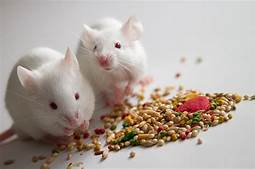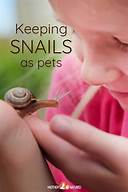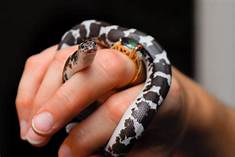What do Mice Eat as a Pet?
Mice are fascinating small rodents that make excellent pets for those who enjoy keeping small animals. They are active, playful, and relatively easy to care for. However, it is important to understand the nutritional needs of mice in order to ensure their health and well-being. In this article, we will explore what mice eat as a pet, including the various types of food they should be provided.

Commercial Rodent Pellets
Commercial rodent pellets are the staple diet of pet mice. These pellets are specifically formulated to provide mice with the essential nutrients they need, including proteins, carbohydrates, fats, vitamins, and minerals. When choosing rodent pellets, it is important to select a high-quality brand that is free from fillers and artificial ingredients. You should also adjust the amount of pellets you offer your mouse based on their size, age, and activity level.
Fresh Fruits and Vegetables
Mice love fresh fruits and vegetables, which provide them with essential vitamins, minerals, and antioxidants. Some of the best fruits and vegetables to feed your mouse include apples, bananas, berries, carrots, celery, and leafy greens. However, it is important to avoid feeding your mouse fruits and vegetables that are high in sugar or that can be toxic to mice, such as grapes, onions, and avocado. You should also wash fruits and vegetables thoroughly before giving them to your mouse.
Seeds and Nuts
Mice also enjoy eating seeds and nuts, which are good sources of protein and healthy fats. Some of the best seeds and nuts to feed your mouse include sunflower seeds, pumpkin seeds, peanuts, and walnuts. However, it is important to limit the amount of seeds and nuts you give to your mouse, as they are high in fat and can lead to obesity if fed in excess.
Treats
Mice can also be given occasional treats, but these should be given in moderation. Some of the best treats for mice include yogurt drops, cheese, and mealworms. However, it is important to avoid giving your mouse treats that are high in sugar or fat, as these can lead to health problems.
Water
Fresh water is essential for mice, and it should be available to them at all times. You should change the water in your mouse's water bottle daily, and you should also clean the water bottle regularly to prevent the growth of bacteria.
Declaration: All article resources on this website, unless otherwise specified or labeled, are collected from online resources. If the content on this website infringes on the legitimate rights and interests of the original author, you can contact this website to delete it.





